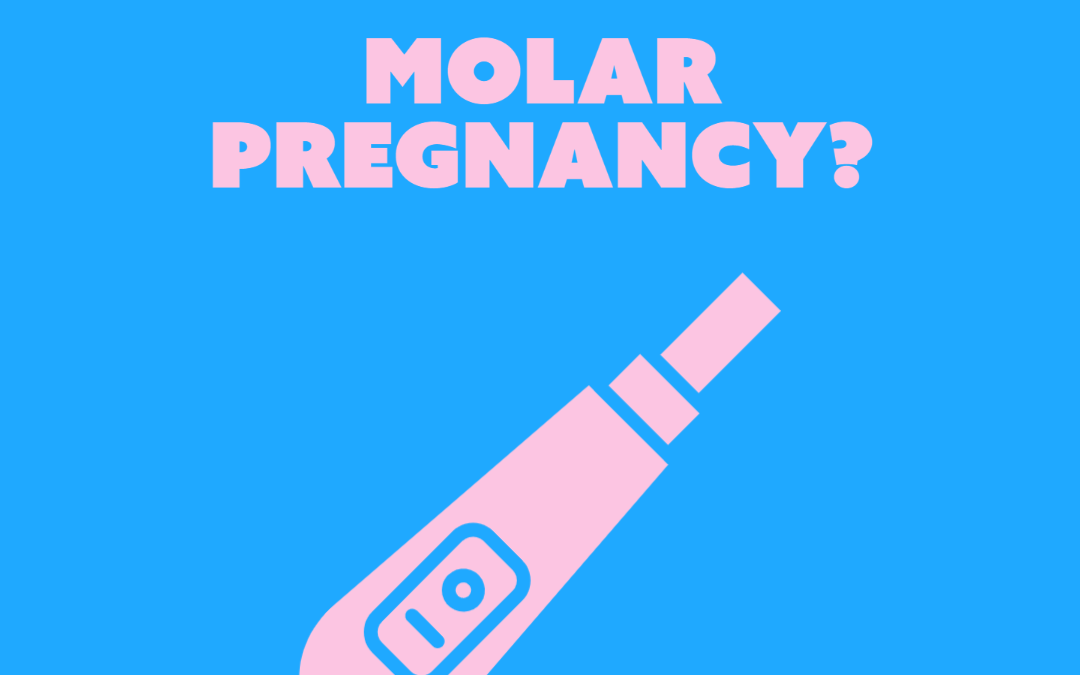Pregnancy occurs after an embryo burrows into the lining of the uterus. Then the placenta forms, the baby grows and develops, and is born nine months later. Simple, right?
Sometimes, though, these simple beginning stages can get muddled and mixed up. When this happens, it can result in a miscarriage, ectopic pregnancy, or another heartbreaking conclusion. And while this can be devastating, it is no one’s fault. One not so well-known pregnancy complication is a molar pregnancy.
A molar pregnancy—also known as hydatidiform mole—is a rare complication characterized by the abnormal growth of trophoblasts, the cells which normally develop into the placenta. This abnormal growth is caused by a problem with the embryo’s chromosomes. This pregnancy will not continue because the placenta is not able to nourish or grow a baby. In rare cases, it may also lead to health risks for mom, like cancer.
There are two types of molar pregnancies: Partial molar and complete molar.
- Complete molar pregnancy – This occurs when chromosomes from the mother’s egg are missing or are not functional, but the chromosomes from the father are still copied. All 46 chromosomes come from the father; no embryo or placental tissue results, but the body believes it is pregnant.
- Partial molar pregnancy – This occurs when the embryo starts to grow, but has two sets of chromosomes from the father and one from the mother, resulting in 69 chromosomes instead of 46. This can happen when all of the father’s chromosomes are copied or when two sperm fertilize one egg. The embryo starts to grow but cannot survive.
Women who are at higher risks of developing molar pregnancies are younger than 20 or older than 35, have had a molar pregnancy before, or had two or more previous miscarriages. The only way to diagnose a molar pregnancy is to have a doctor perform an ultrasound. Luckily, molar pregnancies are comparatively rare, occurring only in 1 out of 1,000 pregnancies.
Even though this embryo from the start was not genetically sound, the emotional toll from experiencing a molar pregnancy hurts just the same as a typical miscarriage. You may feel empty, drained, and lost. Like a part of you will forever be missing. Take time to grieve, heal, and grow.
Some families who have experienced molar pregnancies found that embryo adoption was the answer they were looking for to successfully build their families. To learn more about embryo adoption and donation, visit EmbryoAdoption.org.


Recent Comments